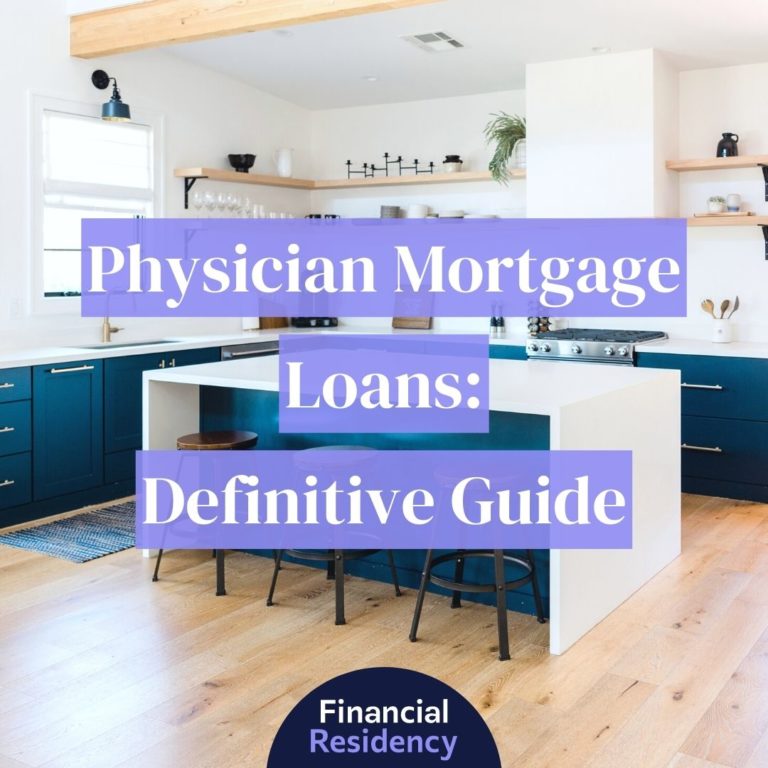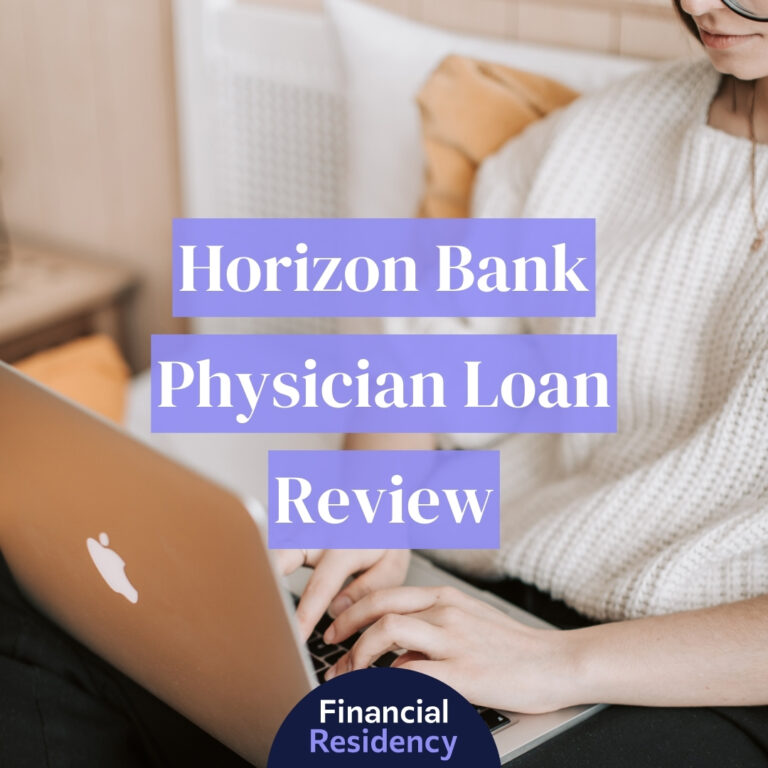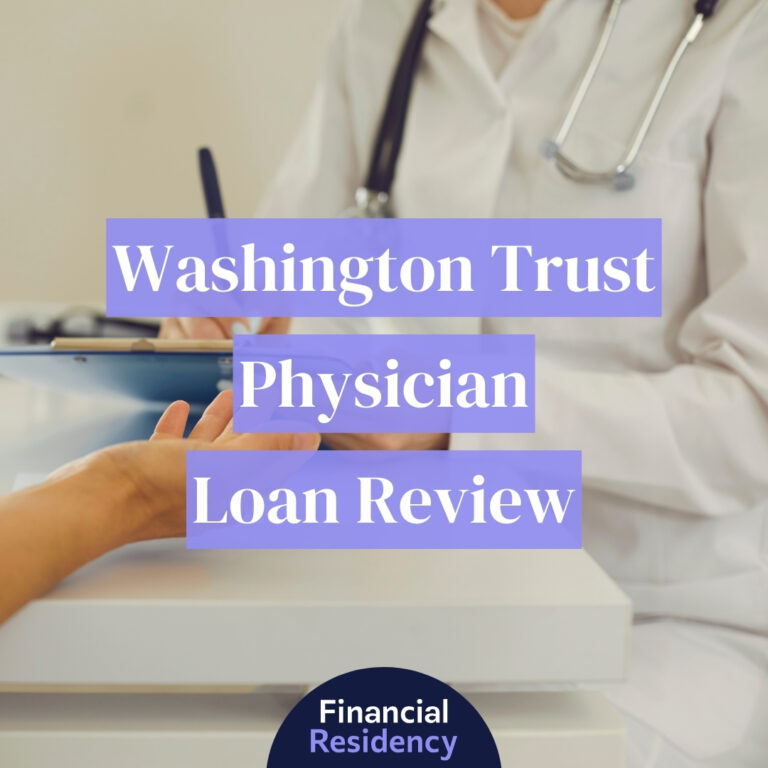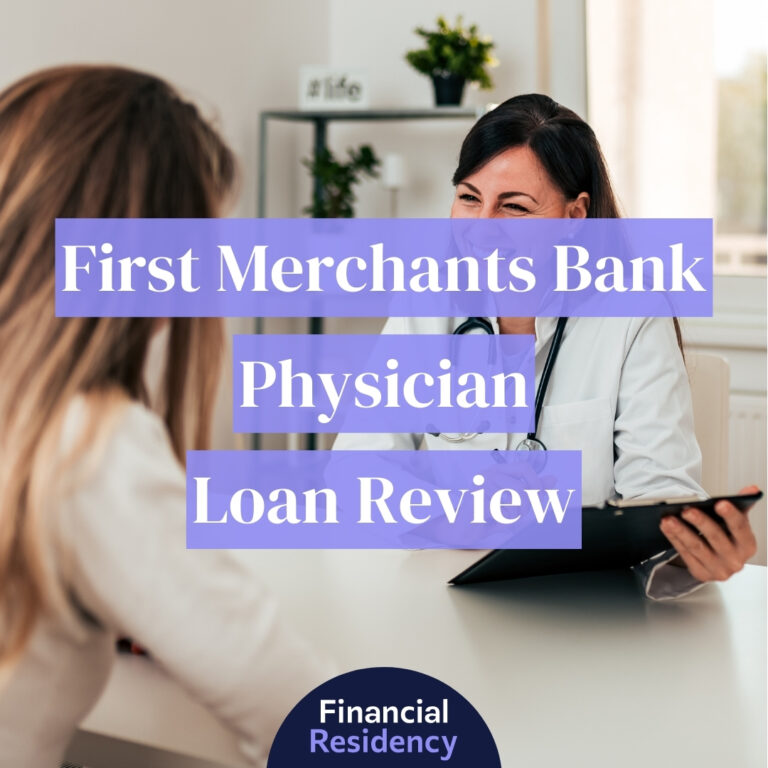Becoming a nurse is a noble pursuit for empathetic healers and natural caretakers. Nurses and other healthcare professionals are the backbones of civilized society who deserve to purchase homes that allow them to do their jobs well. But are there specific home loans for nurses?
Yes! In this article, we’ll review the best home loans for nurses so you can choose the best home-buying program for your unique needs.
5 Best Home Loans for Nurses
You can use several types of home loans for nurses to purchase a home. Here are the top options.
Discover The Best Lenders Answer just a few questions about your career, where you're buying, and how much you want to borrow. Our service will then show you the exact programs you're eligible for from vetted physician loan specialists who will guide you through every step of the process – obligation-free!
1. FHA Loan
- Minimum Credit Score: 580
- Down Payment: 3.5%
The Federal Housing Administration insures FHA loans––allowing mortgage lenders to offer easier qualifying terms to interested home buyers. This particular mortgage program is a good choice for home buyers who don’t qualify for other types of loans.
FHA loans require a 3.5% down payment and mortgage insurance for the life of the loan. FHA loans charge upfront and annual mortgage insurance. The upfront premium is 1.75% of the loan amount, and the annual premium is 0.55% (for most loans) of the outstanding amount annually. Mortgage insurance is bundled into your monthly mortgage payment.
FHA loans are available in 15- and 30-year terms with fixed interest rates, making it easier to manage your money over the loan term than adjustable-rate mortgage products.
This loan type is only available to purchase or refinance a primary residence. Borrowers must have a debt-to-income ratio lower than 43% and a verifiable work history for at least two years to meet the eligibility requirements.
Closing costs can also be rolled into the loan if you are interested in a no-closing cost mortgage, but it’s important to remember that you’ll pay interest on this amount over the lifetime of your loan term.
Pros:
- Will approve lower credit scores with a higher down payment
- Fixed-rate mortgage products
- Allows higher DTI ratios with better credit scores, down payments, or cash reserves
- No-closing cost options
Cons:
- Requires mortgage insurance
- Upfront mortgage insurance premium of 1.75%
- Restricted to conforming loan limits set by the Federal Housing Finance Authority
- Must be used to purchase a primary residence
2. Physician Loan
- Minimum Credit Score: 680–700
- Down Payment: 0–15%
Physician loans are another worthwhile consideration for prospective home buyers working in healthcare. While not all physician loans are available to nurses, a loan officer can walk you through all the eligibility requirements for each mortgage loan program so you can find the best fit.
Physician loans are specialized products designed to help high-earning medical professionals with significant student loan debt, limited work history, and little money saved for a down payment.
Many physician loan programs will provide up to $750,000 with zero money down and no PMI requirement. Higher loan amounts may require down payments of at least 5%.
Physician loans also don’t have to abide by the loan limits set by the Federal Housing Finance Authority (FHFA), so buyers can qualify for homes outside the maximum purchase price of other home-buying programs. For example, some physician loan programs will provide more than $3.5 million in financing.
Physician mortgage programs are also more lenient regarding debt-to-income ratio calculations. Some lenders even exclude student loan debt from the DTI, especially if it’s deferred.
Unlike other mortgage programs, physician loans will accept future-dated employment contracts as proof of earning potential, which can be a great option for nurses who relocate for new jobs.
Pros:
- Flexible DTI calculation (often excluding student loans)
- Low or no down payment
- No PMI requirement
- Not restricted to conforming loan limits
- Will accept employment contracts as proof of income
Cons:
- Only certain degrees are eligible
- Typically adjustable-rate mortgages
- Can be easy to purchase outside your budget
- Higher credit score requirement than other mortgage programs
Learn More:
3. VA Loan
- Minimum Credit Score: N/A
- Down Payment: 0%
The Department of Veteran Affairs backs VA loans. These types of loans are available to nurses and other medical professionals who have served in any branch of the armed forces or the reserves.
Borrowers must also be on active duty or honorably discharged to be eligible. However, VA loans are especially lenient on minimum credit scores. Instead of requiring a minimum credit score, lenders are required to look at your entire loan profile.
VA loans do not require a down payment or private mortgage insurance (PMI), which is generally required for down payments below 20%.
In many cases, if you’re eligible for a VA mortgage loan, it’s often your best option.
Pros:
- No minimum credit score requirement
- No private mortgage insurance
- Reduced or waived closing costs
- No down payment
Cons:
- Can’t be used for a second home or investment property
- May not be as attractive to some sellers
- May take longer to close due to government inefficiencies
4. USDA Loan
- Minimum Credit Score: 640*
- Down Payment: N/A
USDA loans are another zero-down payment option for home buyers interested in purchasing a qualifying property. All properties must be inspected to the USDA’s standards as part of the loan approval process, and the USDA requires a minimum 640 credit score.
USDA loans are insured by the U.S. Department of Agriculture, which allows lenders to offer very competitive interest rates with no PMI. Also, the USDA may allow alternative documentation if you don’t have a sufficient credit history.
Loan limits vary based on the market you intend to purchase in, but rural areas have a typical loan limit of about $330,000. Instead of PMI, USDA loans charge an upfront and annual guarantee fee to keep the program running. The upfront fee is 1% of the loan amount, and the annual fee is 0.35% of the outstanding loan amount paid monthly.
The USDA also offers home improvement loans of up to $40,000 and grants of up to $10,000. Loans and grants can also be bundled. Home improvement funding is meant to upgrade or repair an existing property used as a primary residence. If you choose to sell the property within three years of renovating, you’ll be required to repay any grant money.
Home improvement loans have an interest rate of 1% over a 20-year loan term.
Pros:
- Offers several loan products depending on the borrower’s needs
- Will consider borrowers without a credit history
- Low-interest rates
- No down payment or PMI requirement
Cons:
- Upfront funding fee of 1% of the loan amount
- Annual fee of 0.35% of the loan amount
- Must meet income limits to qualify for a direct loan
- Strict inspection requirements
5. Conventional Loan
- Minimum Credit Score: 620
- Down Payment: 3–20%
Conventional loans are the most common mortgage because they have fewer restrictions than some other loan products on the market. For example, conventional loans don’t have property restrictions, so nurses can use them to purchase second homes and rental properties.
However, conventional loan products will have more stringent credit requirements than other government-sponsored loan programs because Freddie Mac and Fannie Mae back them.
These organizations purchase mortgages from local lenders and sell them to investors, which allows lenders to continue providing mortgages in their area.
Conventional loans can be conforming or non-conforming. Conforming loans will abide by the loan limit set by the Federal Housing Finance Agency for your state. Jumbo loans are an example of a non-conforming mortgage because they exceed these loan limits.
First-time home buyers can qualify for conventional loan programs with as little as 3% down. Conventional mortgages can be used to purchase a new home or refinance an existing home.
Multi-unit properties may require 15% down payments. Second home loans typically require a 10% down payment.
Pros:
- No upfront funding fees
- No limit on the number of loans you can have at a time
- Terms vary from lender to lender, so you can shop around
- Favorable interest rates
Cons:
- Requires a higher credit score than FHA and VA loans
- Requires PMI when you put down less than 20%
4 Home Loan Grants & Down Payment Assistance Programs for Nurses
There are a few home loan grants and down payment assistance programs available for nurses:
1. Homes for Heroes
Homes for Heroes is a network of Realtors, real estate agents, and mortgage lenders who provide discounted services to qualified borrowers, such as:
- teachers
- healthcare professionals
- first responders
- current or former armed forces members
Heroes save an average of $2,300 when working with the Homes for Heroes real estate specialist, $500 on lender fees, $150 on title fees, and $50 on home inspections.
2. Nurse Next Door
Nurse Next Door offers a few products that can help with the costs of purchasing a home. Grants can be used to purchase any home on the market. Grants range from $1,000 to $8,000. Borrowers can apply for down payment assistance up to $10,681.
The First Time Buyers Program will guide you through purchasing your first home while waiving application, home buyer representation, and appraisal fees.
The First Start Program is designed for borrowers with troubled credit backgrounds. It will work with interested home buyers to repair their credit so they can have a more competitive mortgage application.
3. Good Neighbor Next Door
The U.S. Department of Housing and Urban Development (HUD) offers its Good Neighbor Next Door Program to full-time law enforcement officers, teachers, firefighters, and other first responders. Borrowers must meet the program’s eligibility requirements.
The program will provide up to a 50% discount on listed single-family homes in designated revitalization areas, which is a significant cost saver. However, inventory is limited. You can view eligible properties at HUD’s Home Store.
4. Down Payment Assistance Programs in Your State
Many state and local government agencies offer down payment assistance programs. You’ll need to do your research to find the programs available to you.
How to Get Approved for A Home Loan as a Nurse
Applying for a home loan as a nurse is a multi-step process. Knowing what to expect can help you prepare and ensure that the process goes smoothly.
1. Check Your FICO Score and Dispute Any Inaccuracies
The better your credit score, the less risk you are to mortgage lenders. A solid credit foundation will give you access to better mortgage terms, such as lower down payments and interest.
Before you begin the home-buying process, you should check your credit report and FICO score to confirm that all information is accurate.
If you have negative marks or poor payment history, you can work with a credit repair specialist to file disputes and improve your score.
2. Get Pre-Approved
In the current market, many real estate professionals won’t work with anyone who hasn’t been pre-approved.
Getting pre-approved shows you’re serious about the home-buying process and motivated to buy soon. Pre-approval will also give you a better idea of the loan amount you qualify for.
Pre-approval amounts are valid for 90 days.
3. Work with a Loan Officer
Loan officers will walk you through all the documentation you need to qualify for a loan.
Daniel Brown, a loan originator at Envoy Mortgage, says;
“Nurses, like any other home buyer, should find a mortgage loan officer that they trust so they can understand their options.”
Loan officers provide a personalized experience that can help you find the best mortgage product and discounts for your needs.
4. Keep Detailed Records
Nursing pay isn’t as standardized as that of other full-time employees due to base pay, overtime, and shift differential variations.
Maintaining a detailed Excel spreadsheet of overtime hours and extra shifts can help you better explain your income through the underwriting process. Storing copies of your pay stubs can also be a good idea.
Full-time salaried employees will have an easier time qualifying for a mortgage because their income history appears stable to lenders. However, some borrowers may be surprised that their current high earnings aren’t always reflected in their loan approval amount, as lenders will calculate the average income over recent years.
Due to short contracts, travel nurses can have a more difficult time qualifying for a loan. Brown says,
“A travel nurse will need to prove a 2-year income history in the nursing field. They will average your income over 2 years, not the current income at the present job.”
5. Request a Letter of Explanation
The Human Resources Department at your facility can write a letter of explanation stating that your overtime hours, bonuses, and other additional income are stable.
Underwriting sees overtime hours as temporary, but a letter from your place of employment can ease those concerns.
6. Maximize Your Taxable Income
Travel nurses are often reimbursed for certain expenses incurred while on contract, but this income is considered non-taxable and thus can’t be used to help you qualify for a higher loan amount.
If your contract allows you to waive per diem pay and bundle it into your salary, your taxable income will increase, allowing you to qualify for larger mortgages.
How to Choose the Right Home Loans for Nurses
Choosing the right home loan is as important and stressful as choosing the right house. Nurses have many options at their fingertips, including grants or flexible underwriting programs to make securing a mortgage easier.
To choose the right mortgage, assess your financial situation. Ask yourself:
- How much money can I afford to put down on the home?
- What is my credit score, and can I improve it?
- How long do I plan to be in the home?
- Do I qualify for VA financing (were you a veteran)?
When you’ve narrowed your mortgage options, compare them side-by-side. Look not only at the monthly payment but at the big picture. How much interest will you pay over the loan term? What fine print requirements does the loan program have?
Looking at the big picture and determining which loan offers the best overall affordability will help you choose the right home loans for nurses.
Mortgage Requirements for Nurses
The mortgage requirements for nurses aren’t different from those of other professionals; instead, it will depend on the home loan product you decide works best for your needs.
With that said, there are a few documents all mortgage lenders require before approving you for a loan.
Mortgage applications will require:
- Verified employment history (W-2s, paystubs, tax returns, alimony/child support)
- Assets and debts (401k, savings accounts, investments)
- Gift letters if using interested party contributions
- Credit history
- Rental history
- Marriage/divorce documents
- Bankruptcy and foreclosure documents, if applicable
Home Buying Challenges for Travel Nurses
Travel nursing has recently become an attractive employment arrangement, especially since the pandemic; however, travel nurses have a few challenges that staff nurses may not face.
Employment Gaps
The typical travel nurse contract is 13 weeks, but not every nurse immediately starts another contract. The demand for travel nurses can ebb and flow, making mortgage lenders nervous.
We recommend reducing employment gaps as much as possible in the years before you buy a home.
Per-Diem
Many travel nurses are attracted to the profession due to its flexibility. But, per-diem travel nurses are paid per day and aren’t full-time employees. This salary can look unstable to lenders because it can be seasonal or irregularly scheduled.
However, per-diem pay can look less risky if you provide tax returns, pay stubs, or cash reserves.
Additional Income
Hospitals and staffing agencies have incentivized registered nurses nationwide with sign-on and completion bonuses. Nurses may also earn supplemental income through side hustles between contracts.
Working with an accountant can give you a better idea of how to file taxes for your supplemental income while you prepare to buy a home.
Student Loan Debt
Nurses and other medical professionals often have student loan debt. The average nursing school graduate has more than $37,000 in debt. At least 70% of graduates carry student loan debt.
Many mortgage programs prefer borrowers to have debt-to-income ratios lower than 43%. If your educational and personal debt exceeds this limit, you may want to consider an income-driven repayment plan or apply for a loan forgiveness plan.
The Nursing Education Loan Repayment Program will forgive 60% of student loan debt for nurses who work for at least two years in a non-profit hospital in a designated shortage area. Similar programs, such as the Nurse Corps Loan Repayment Program, will pay up to 85% of unpaid student loan debt.
Frequently Asked Questions
Do nurses get discounts on mortgages?
Nurses don’t necessarily get discounts on mortgages, but specialized programs are designed to help healthcare professionals become homeowners. In many cases, these programs provide lender credits to reduce closing costs.
Nurses may also qualify for lower down payment options on higher loan amounts.
Can a single nurse afford a house?
Yes, a single nurse can afford a house. Registered nurses make an average of $89,000 per year, and those with an advanced degree can make well over six figures.
The exact loan amount you are eligible for will depend on your income, debt-to-income ratio, down payment, market trends, and current interest rates, but pre-approval can help you get a better idea of how much home you can afford.
Are there any home loans for nurses with bad credit?
There are a couple of home loan options for nurses with bad credit. FHA and VA loans are worthwhile considerations if you aren’t able to pursue credit repair before beginning the home-buying process.
FHA loans will approve borrowers with credit scores as low as 500 with a 10% down payment. VA loans don’t have a minimum credit score requirement. Instead, lenders look at your overall loan profile to determine your risk.
The higher your credit score, the more favorable your down payment and interest rates will be.
Is it harder for travel nurses to get a mortgage?
It can be harder to get a mortgage as a travel nurse. From a mortgage lender’s perspective, travel nurses can be considered risky because 13-week contracts and gaps between contracts can look like unsteady employment.
Sometimes, you can write a letter explaining your employment structure, and the lender may be more flexible. It’s recommended that you aim to reduce gaps in your employment as much as possible two years before buying a home.
How do travel nurses calculate their total income?
Nurses earn several types of income, including base pay, overtime, bonuses, and extra shift pay. Base pay is the easiest to use for qualifying purposes.
The average nurse earns $39.78 per hour and works 40 guaranteed hours per week. Their base would be $1,591.20 per week for a total of $82,742 per year.
Shift differential is bonus pay for shifts worked between 3 pm and 8 am. Your pay stub should specify the shift differential rate and how many hours you’ve worked that qualify for the bonus.
You can calculate your annual shift differential income by multiplying the qualifying hours by the shift differential rate.
You can also annualize overtime or bonus pay but you must prove consistency for lenders to use it for qualifying purposes.
Bottom Line
Your home is where you recuperate from your stressful days as a nurse.
According to the United States Bureau of Labor Statistics, job openings for registered nurses are expected to grow at least six percent between 2020 and 2030, thanks to the pandemic creating a shortage of nurses.
Careers like travel nursing have helped registered nurses make impressive incomes without a long-term commitment to a facility. Full-time staff nurses are routinely able to pick up extra shifts and overtime to compensate for the current shortage.
For this reason, mortgage lenders have many programs to help nurses pursue homeownership, especially if they’re also first-time home buyers.




